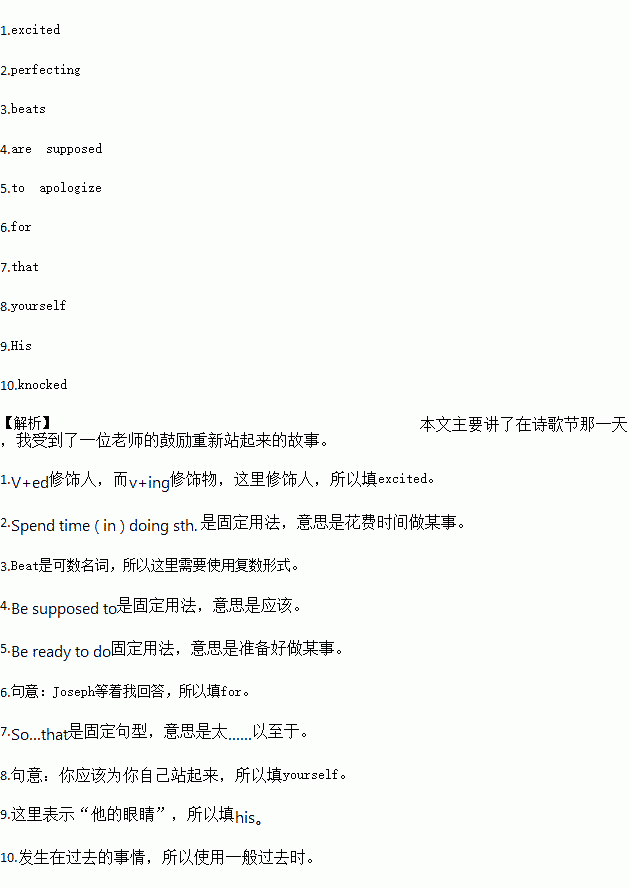题目内容
It was the day of the poetry festival, and I was 1. (excite). At my old school, I had won the poetry ribbon every year. I do write good poetry. When Mrs. Baker called on me, I stood up. I didn’t even bother to look at my paper. I’d spent so much time2. (perfect) the rhymes, and counting the 3. (beat), that I knew the poem by heart. I had just started the third verse when I noticed Mrs. Baker was glaring at me. “Linda, you 4. (suppose) to be reading an original work, a poem you made up yourself, not reciting something you learned.” I opened my mouth to explain, but no words came out. “You will leave the room and will not return until you are ready 5. (apologize),” said Mrs. Baker. “Now. Go!” I turned and left the room. I’d been standing outside for about half an hour when Joseph, another school teacher, came over to ask me why. Now, as Joseph waited 6. me to answer, he looked so kind and sympathetic(同情) 7. I poured out the whole story, trying not to cry. “Linda, accepting defeat, when you should stand up for 8. (you), can become a very dangerous habit. You know you are the only Linda Brown in the whole world.” 9. eyes smiling into mine, I took a deep breath and 10. (knock) on the classroom door, ready to face Mrs. Baker – ready to recite my poem.
 阅读快车系列答案
阅读快车系列答案

 it easy.
it easy.